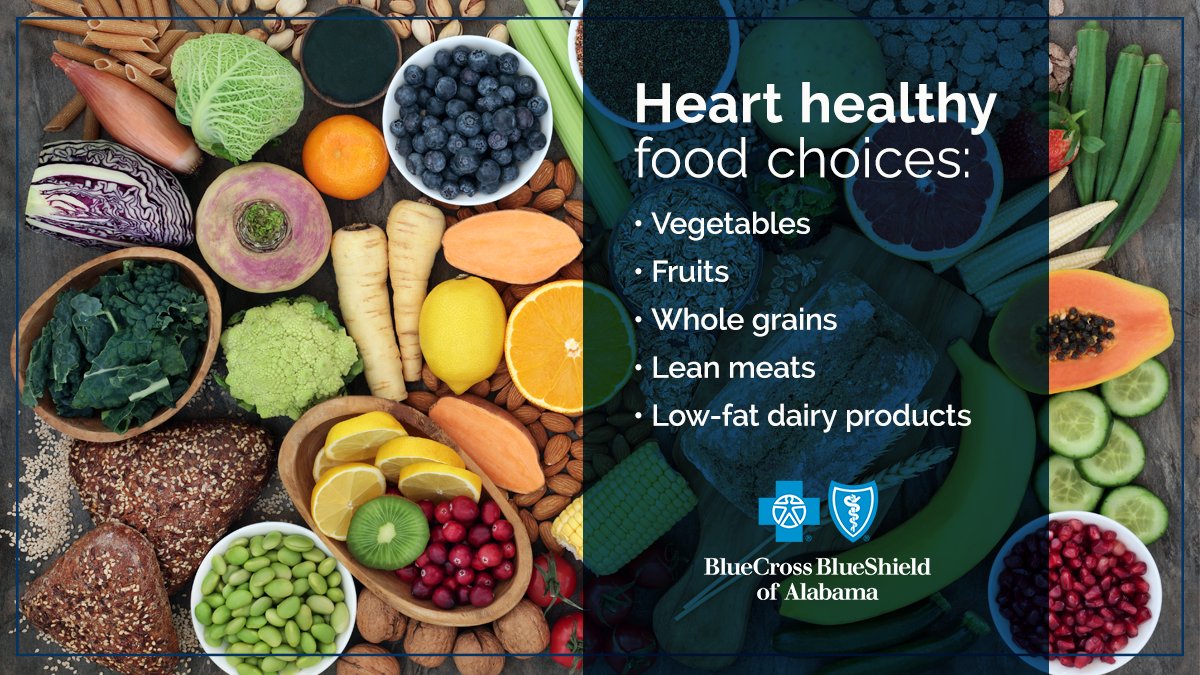
Heart disease is one of the most common causes of death in the United States. One person dies from a heart attack every 40 seconds. Some believe that heart disease is the silent killer. Managing your blood pressure, is also important. Over 80, you should aim for 120. The American Council on Exercise recommends that you do 150 minutes of moderately intense physical activity each week. Before you start a new exercise program, make sure to consult your healthcare provider.
An average 17.5 minute visit from your doctor is required to evaluate you. The doctor will talk with you about your symptoms, examine your vital signs and answer any questions. Also, limit the consumption of fried and processed foods. Limiting your intake of alcohol, red meat, and other alcoholic beverages is also a good idea. They can raise your blood pressure. It is best to avoid medications that cause high blood pressure, or weakening of the heart. Your doctor will be able to provide you with the right prescription.

It is important to have your cholesterol levels checked on a regular basis. While this may seem a bit excessive, it is an important part of heart health and is often free through your insurance. High cholesterol can cause blockages in the arteries and reduce blood flow to the heart. Regularly checking your cholesterol is essential for your health. On a regular basis, you should follow heart health tips. You should inform your doctor if you have any history of heart disease.
Keeping your heart healthy is essential to overall health. You can do this through increasing your daily activity. Even if exercise isn't your thing, you can still enjoy a vigorous workout through walking, swimming, and dancing. You can also paint your room or garden if you don't like to exercise. If you don’t have enough time for exercise, consider walking the distance between where your home is and your workplace. This will make your heart stronger.
Walking is a good way to improve your heart health. Walking is good for the heart. Walking can improve your health, energy, and prevent many illnesses. You can walk for as much time as you wish - it's far better than sitting still. You will enjoy many benefits from keeping your heart healthy, including a higher quality of your life.

You can reduce your risk of getting heart disease by eating healthy food. A diet rich with fruits and veggies is associated to lower heart disease risk. Similarly, eating wholegrain cereals has more fiber and is better for your heart. Besides, it's a good way to keep yourself from gaining too many weight. It will increase your energy and fight fatigue. It also has other health benefits.
FAQ
Which diet is best for me?
Your lifestyle and individual needs will determine the best diet for your body. You should also consider how much energy your exercise consumes, whether you like low-calorie or high-calorie foods, and what you enjoy in terms of eating fruits and veggies.
Intermittent fasting might be an option for you if your goal is to lose weight. Intermittent fasting involves consuming only specific meals throughout the day, rather than having three large meals. You may find that this method works better for you than traditional diets that include daily calorie counts.
Studies have shown that intermittent fasting can improve insulin sensitivity and decrease inflammation. This could lead to improved blood sugar levels, and a lower risk of developing diabetes. Research also shows that intermittent fasting may increase fat loss and improve overall physique.
How do I get enough vitamins?
Most of your daily vitamin requirements can be met by diet alone. However, if you are deficient in any particular vitamin, taking supplements can help. You can take a multivitamin supplement that contains all the vitamins you need. You can also get individual vitamins from your local pharmacy.
Talk to your doctor if there are any concerns about getting enough nutrients. You can find vitamins K and E in dark green leafy vegetable such as spinach, kale and turnip leaves, as well a variety of sweet potatoes and sweet potatoes.
Ask your doctor if you're not sure how many vitamins you should take. The doctor will determine the proper dosage based upon your medical history as well as your current health.
Do I need to count calories
You might wonder, "What's the best diet for me?" or "is counting calories necessary?" Well, the answer depends on several factors including your current health status, your personal goals, your preferences, and your overall lifestyle.
The Best Diet for Me - Which One is Right For You?
My current health status, personal goals, preferences, and overall lifestyle all play a role in choosing the right diet. There are many different diets, some good and some not so good. Some are better for certain people than others. So what do I do? How can I make the right choice?
These are the questions that this article attempts to answer. It starts with a brief introduction of the different types of diets available today. The pros and cons of each diet are then discussed. Finally, we'll look into how to choose the best one for you.
Let's look at some of the main types of diets to get started.
Diet Types
There are three main types. Low fat, high proteins, and ketogenic. Let's briefly discuss them below.
Low Fat Diets
A low-fat diet reduces the amount of fats you eat. This is done by reducing your intake of saturated oils (butter, cream cheeses, etc.). and replacing them with unsaturated fats (olive oil, avocados, etc.). For those looking to lose weight quickly, a low-fat diet is often recommended. This diet can cause problems such constipation as heartburn, indigestion, and even stomach pain. It can also lead to vitamin deficiencies, if someone doesn't get enough vitamins in their food.
High Protein Diets
High protein diets restrict carbohydrates in favor of proteins. These diets usually have higher amounts of protein than other diets. These diets are designed to build muscle mass and help you burn more calories. The downside is that they may not provide adequate nutrition for someone who needs to eat regularly. They can also be very restrictive so they may not be suitable for everyone.
Ketogenic Diets
The keto diet is also known as the keto diet. They are high fat and moderately carbohydrate and protein-rich. They are commonly used by athletes and bodybuilders, as they allow them train harder and more frequently without getting tired. But, they require strict adherence to avoid negative side effects like nausea, headaches, and fatigue.
What should I eat?
Eat lots of fruits and vegetables. These vegetables and fruits are rich in vitamins and minerals that will keep your immune system strong. They are also rich in fiber, which is good for digestion and makes fruits and vegetables filling. Include at least five portions of fruit and vegetables per day.
Drink plenty of water. Water helps flush toxins out of your body and makes you feel fuller between meals. Drink about eight glasses each day.
Choose whole grains over refined grains. Whole grains have all the nutrients they need, including B vitamins. Some nutrients have been removed from refined grains.
Sugary drinks should be avoided. Sugary drinks are loaded with empty calories and contribute to obesity. Instead, choose water, milk, and unsweetened tea.
Avoid fast food. Fast food has little nutritional value. It may taste great but it won't give you the energy you need to function properly. Avoid soups, sandwiches and other unhealthy options.
Try to limit alcohol intake. Alcohol contains empty calories and contributes to poor nutrition. Limit yourself to no more than two alcoholic beverages a week.
Reduce your consumption of red meat. Red meats are high-in saturated fat and cholesterol. Lean cuts of beef or pork, lamb and chicken, as well as fish, are better choices.
How can I reduce my blood pressure
First, you must determine what is causing high blood pressure. Next, take steps that will reduce the risk. This could include eating less salt, losing weight if necessary, taking medication, etc.
Make sure you're getting enough exercise. You can also walk if you don’t have the time.
You should join a gym if you are unhappy with your exercise routine. You will probably join a gym where you can meet other people with similar goals. It's much easier to follow a routine if someone is with you at the gym.
Statistics
- In both adults and children, the intake of free sugars should be reduced to less than 10% of total energy intake. (who.int)
- The Dietary Guidelines for Americans recommend keeping added sugar intake below 10% of your daily calorie intake, while the World Health Organization recommends slashing added sugars to 5% or less of your daily calories for optimal health (59Trusted (healthline.com)
- nutrients.[17]X Research sourceWhole grains to try include: 100% whole wheat pasta and bread, brown rice, whole grain oats, farro, millet, quinoa, and barley. (wikihow.com)
- WHO recommends reducing saturated fats to less than 10% of total energy intake; reducing trans-fats to less than 1% of total energy intake; and replacing both saturated fats and trans-fats to unsaturated fats. (who.int)
External Links
How To
What does the term "vitamins" mean?
Vitamins are organic substances found naturally in food. Vitamins are essential for our bodies to absorb nutrients from the foods we eat. Vitamins cannot come from the body so food must provide them.
There are two types of vitamins: water soluble and fat soluble. Water soluble vitamins dissolve easily in water. These include vitamin C (thiamine), Vitamin B1 (riboflavin), Vitamin B2 (riboflavin), Vitamin B3 (niacin), Vitamin B6 (pyridoxine), Vitamin C, B1 (thiamine), Vitamin B2 (riboflavin), Vitamin B3 (niacin), and Vitamin B6 (pyridoxine). The liver and fat soluble vitamins are stored within the liver and in fatty tissue. Vitamin D, E, K and A are some examples.
Vitamins can be classified by their biological activity. There are eight major categories of vitamins.
-
A - essential for normal growth and maintenance of health.
-
C - important for proper nerve function and energy production.
-
D - Essential for healthy teeth and bones.
-
E is necessary for good vision, reproduction.
-
K - essential for healthy muscles, nerves, and bones.
-
P – vital for building strong bones.
-
Q - Aids digestion and iron absorption
-
R - Required for red blood cell production
The recommended daily allowance of vitamins (RDA), varies according to age, gender, physical condition, and other factors. The U.S. Food and Drug Administration (FDA) sets the RDA values.
For adults 19 years and over, the RDA of vitamin A is 400mg per day. For fetal development, pregnant women need 600 mg per day. Children ages 1-8 require 900 micrograms per day. Children under 1 year old require 700 micrograms daily, while infants over one year old need 500 micrograms every day. This decreases between 9 and 12 months.
Children aged 1-18 years need 800 micrograms daily, while children overweight require 1000 micrograms per days. Children who are severely obese or underweight will need 1200 micrograms each day.
2200 mg of vitamin A per day is required for children aged 4-8 who have been diagnosed by anemia.
2000 micrograms are required daily for good health in adults over 50. Because of their higher nutrient needs, women who are pregnant or nursing need 3000 mg per day.
Adults over 70 require 1500 micrograms each day, since they lose around 10% of their muscle mass every decade.
Women who are pregnant and lactating need more nutrients than the RDA. Pregnant women require 4000 micrograms daily during pregnancy, and 2500 micrograms every day after birth. Breastfeeding mothers need to consume 5000 micrograms every day when breastmilk has been produced.